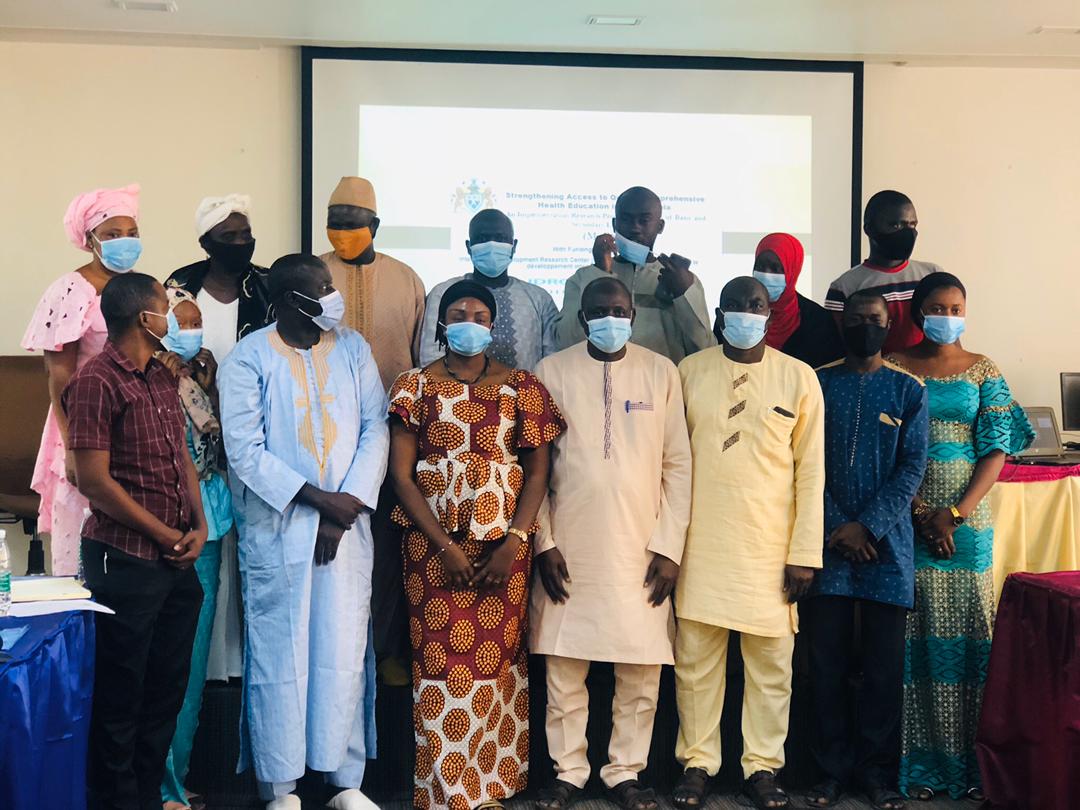By Yunus S Saliu
The Curriculum Research, Evolution and Development Directorate (CREDD) of the Ministry of Basic and Secondary Education Friday met with the the National Assembly select Committee on Health, Women, Children, Refugees, Disaster, and Humanitarian Relief for a dissemination meeting to discussed the Comprehensive Health Education (CHE) to students in and out of school.
The centered on the project – Strengthening Access to Quality Comprehensive Health Education in The Gambia. It is an implementation research project done by Ministry of Basic and Secondary Education funded by International Development Research Center (IDRC), Canada.
In her presentation, Mrs Phebian Ina Grant-Sagnia, principal investigator of project for Strengthening Access to Quality Comprehensive Health Education for in-and-out of School Adolescents in Region I, The Gambia emphasized that CHE among adolescents and youth would provide students with life skills with which they can handle crisis situations: and “become aware of their body and its functioning and can protect themselves from sexual abuse if they are well informed.”
Introducing the CHE to member of the National Assembly select Committee on Health, Women, Children, Refugees, Disaster, and Humanitarian Relief she said it encompasses all aspects of a young person’s life, which included skills, attitudes, and practices of children and youth that are conducive to their good health and promote wellness, health maintenance, and disease prevention among other things.
Mrs Grant-Sagnia who is also a Principal Health Researcher at the Ministry of Health stated that adolescents have various needs with respect to sexual development and have a need to receive help in understanding their own changes of body and behavior and how to cope with these not only at the time but also how to integrate them into a mature personality in the future.
However, in The Gambia, she said, CHE programs in schools started since in the early 1990s and “The Gambia had been using the school curriculum to deal with high population growth rate, adolescent pregnancy and illegal abortion, drug abuse, high infant and maternal mortality rates.”
She added that it was through the introduction of Population and Family Life Education (Pop/FLE) into the school system with the support of UNFPA.
This critical youth sexual and reproductive health, she said, led in2017 to the re-orientation of the POP/FLE with the adoption of new international standards promoting a comprehensive sexuality education.
The Principal investigator also deliberated on the research problem and its rationale as concern about adolescent sexual and reproductive health (ASRH) has grown over the past years, “due to unprecedented increasing rates of sexual and reproductive health infections, early sexual debut, teenage and unwanted pregnancies.”
She disclosed that teenage pregnancies outside of marriage among adolescent girls, in particular, is a major cause for concern in The Gambia, where almost one in five (18%) of adolescent women age 15 to 19 are already mothers or pregnant with their first child.”
Answering questions from members of the select Committee on Health, Women, Children, Refugees, Disaster, and Humanitarian Relief, Dr Mat Lowe members of the research team explained that misinformation about sex and lack of youth friendly sexual and reproductive health services in the country poses challenges to the sexual and reproductive health of young girls.
According to him the aims of the project is to provide policymakers at the Ministry of Basic and Secondary Education with detailed information on the type and short-term effects of age appropriate and culturally relevant package of intervention that can be scaled up to strengthen access to quality comprehensive sexuality education to meet adolescents and youth sexual and reproductive health rights and needs in all Gambian regions.
The Chairman of the National Assembly select Committee on Health, Women, Children, Refugees, Disaster, and Humanitarian Relief, Honorable Ousman Sillah and members of the committee commended the MoBSE Curriculum Research, Evolution and Development Directorate (CREDD) for a job well done.
Honorable Sillah expressed the committee support to the project “this is what we welcome in the National Assembly, the body which is entrusted with the responsibilities of promoting the welfare of Gambians and non-Gambians. So it is our duty to concern ourselves with anything that will promote the welfare of everybody within the gambia.”
This kind of study what it intends to realize is to prepare the children to become responsible, healthy reproductive adult.
Momodou Jeng Director of Curriculum Ministry of Basic and Secondary Education gave a comprehensive summary and important of the project.





